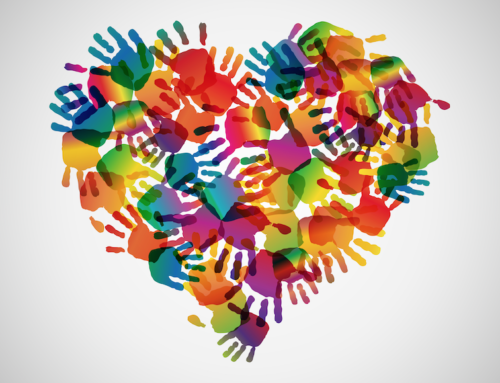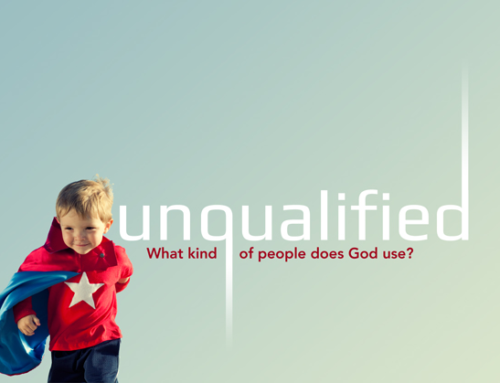Is There Room for Gungor at Your Table?
September 24, 2014
Categories: Religion/Spirituality
Last week I saw Gungor in concert. They were great. My friends and I had a wonderful time.
Gungor has been in the news quite a lot lately. Other Christians have criticized them because they said they no longer believed certain Bible passages such as creation or the flood were literally true.
Beliefs like these are deal-breakers for some Christians. Often churches divide and split over these kinds of issues. How come? Why is complete agreement on certain beliefs so important to some Christians? I think there are 4 reasons:
- Some Christians focus more on beliefs than actions. A key aspect of the Protestant Reformation was the idea that we are saved by grace alone, rather than through our own works. The most important thing wasn’t one’s works or actions, but rather what a person believed about God. Paul writes in Romans “if you declare with your mouth ‘Jesus is Lord,’ and believe in your heart that God raised him from the dead, you will be saved.’ (Rom 10:9) With such a strong focus on beliefs, it wasn’t long before Christians began to argue about who had the right beliefs.
- Some Christians have a tightly interlocked set of beliefs, which causes struggle if one is questioned. In his book Velvet Elvis, Rob Bell called this type of belief system a ‘brick wall faith.’ If one brick is knocked off, the whole wall may come tumbling down. For example, let’s take creation. Perhaps a person questions whether the world is much older than the Bible describes, and thinks Adam and Eve may not have been historical figures. This shift may cause further struggle because Jesus talks about Adam and Eve in the Gospels (Mk 10:6-9), and it seems like Jesus may have believed they were historical figures. So the original question about creation causes a further question about the authority and divinity of Jesus. It’s all connected.
- Beliefs set Christians apart. As human beings, we have a tendency to want to know who is in our group and who is out of our group. The tough thing nowadays is that it is sometimes difficult for Christians to set themselves apart by their actions. There are kind, loving Christians, but there are also mean, selfish Christians. There are generous Christians, and there are stingy Christians. There are Christians who fight for justice, and there are Christians who don’t want to give up their privilege. It’s a mixed bag. It’s easier to categorize people with questions like, “Do you believe being gay is a sin?” or “Do you believe in a literal 7-day creation?”
- Having the same set of beliefs is comfortable. Believing the same thing is comfortable. When I’m around someone who believes similarly, I know I won’t get challenged too much. Instead, I will have my beliefs validated. Consensual validation makes me feel better about my own beliefs. The validation makes it seem more likely I am right. And we all want to feel like we have gotten it right, especially on the important questions of religion and faith.
Instead of focusing on who has the right beliefs and breaking community based on different beliefs, I would like to see Christians move more toward being a community that accepts diversity in beliefs. I think this acceptance of diversity is important for 4 reasons:
- Acceptance of diversity provides more balance between beliefs and actions. I believe both beliefs and actions are important. When we stress one at the expense of the other, I think we get into trouble. For example, in Matthew 7, Jesus says “Not everyone who says to me, ‘Lord, Lord,’ will enter the kingdom of heaven, but only the one who does the will of my Father who is in heaven.” (Mt 7:21) Or in James 2, the author writes “What good is it, my brothers and sisters, if someone claims to have faith but has no deeds? Can such faith save them? Suppose a brother or sister is without clothes and daily food. If one of you says to them, ‘Go in peace; keep warm and well fed,’ but does nothing about their physical needs, what good is it? In the same way, faith by itself, if it is not accompanied by action, is dead.” (Jas 2:14-17) When we prioritize having the right beliefs too strongly, we may lose sight of the importance of actually doing something.
- Acceptance of diversity moves people toward a more flexible faith. In comparison to the ‘brick wall faith,’ Bell discusses an alternative he calls a ‘trampoline faith.’ The idea is the springs on the trampoline represent our beliefs. The surface of the trampoline is our faith. If you remove one spring (e.g., a literal 7-day creation), the trampoline still works just fine. In our society today, I believe it is important to have a certain amount of flexibility in our faith.
- Acceptance of diversity allows for unity with differences. The Bible is full of passages encouraging Christians to be united in love for one another. Jesus prays that his followers “may be one, Father, just as you are in me and I am in you… Then the world will know that you sent me and have loved them even as you have loved me” (John 17:21, 23) Paul encourages the church in Philippi, writing “if you have any encouragement from being united in Christ, if any comfort from his love, if any common sharing in the Spirit, if any tenderness and compassion, then make my joy complete by being like-minded, having the same love, being one in spirit and of one mind.” (Phil 2:1-2) I don’t think Jesus and Paul are saying we all need to be exactly the same. Rather, we should engage with one another in love, humility, and have unity in our diversity.
- Acceptance of diversity keeps me on my toes. Allowing for different points of view challenges me, and it challenges the church. I think one way we get closer to God’s heart and will is by allowing for differences of opinion and discussion. If we all believe the same things, there is less movement, change, and growth. We get stagnant. Allowing for different points of view may not be comfortable, but it is good.
Beliefs are important because they (hopefully) influence our actions. It is good to think about and discuss what we believe. But when we have those discussions, let’s not lose sight of the bigger picture. Let’s not lose sight of Jesus’ command to love God and love others, upon which hung “all the Law and the Prophets” (Mt 22:36-40)
Is there room for Gungor at your table?
Discussion: How important do you think it is to have the exact same beliefs in a religious community? What do you think about the balance between beliefs and actions? Is it possible to have unity with diversity?
Related Thoughts

Subscribe To My Newsletter
Join my mailing list to receive the latest blog posts.
Receive my e-book “The Mental Health Toolkit” for free when you subscribe.





